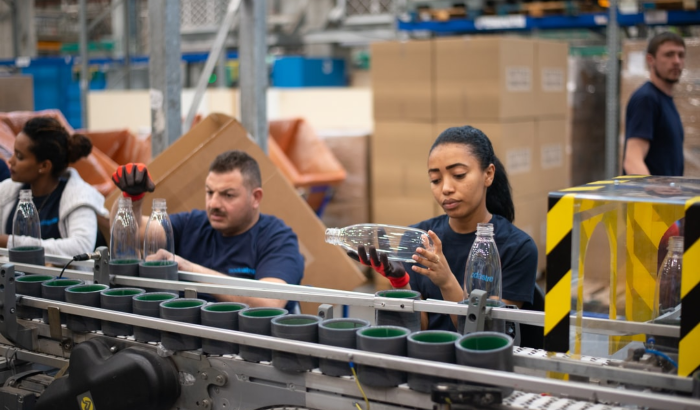Before March, the average job-seeker spent up as many as 11 hours every week looking for suitable employment. That was before the full extent of COVID-19 was known and before many businesses felt the full brunt of its impact. Now food and beverage recruiters and job-seekers alike are navigating unfamiliar waters. Here are the ways recruiters are adapting client experiences amid the global pandemic.
Food and Beverage Recruiters
Before the pandemic, the recruitment process was hardly one-size-fits-all. Food and beverage recruiters proceeded very differently than manufacturing headhunters, for example. Searches and experiences were industry-specific whenever possible. Today, these experiences are changing across industries.
Prior to 2020, phone interviews and Skype interviews existed, but they generally were not the preferred first point of contact. These types of interviews were reserved for applicants from out of state, or for pre-screening and whittling down pools of potential candidates.
Now it is customary for the first interview to be over-the-phone or on an online platform. Second interviews may be in-person. These determinations are made on a case-by-case basis. If meetings do take place face-to-face, however, interviewers and interviewees are encouraged to abide by guidelines from the Centers for Disease Control and Prevention (CDC). That means wearing appropriate face coverings for the duration of the interview. Attendees should remain six feet apart, and handshakes — once a measuring stick of a candidate’s potential for some — are strongly discouraged.
An Uptick in Contract Hires
The future is uncertain. What is certain is that some companies are suddenly without staff they desperately need, and others cannot afford the few employees they have. The good news for job-seekers is that some industries are booming. The food and beverage industry is going strong, for example. Grocery stores and markets are thriving, and people all over the country are ordering takeout, even if they prefer not to or cannot dine-in. Talk to food and beverage recruiters about available opportunities.
To meet this growing demand, companies are hiring more people. Contract to hire positions are popular right now, giving both employees and employers the opportunity to test out the waters and see if they are a good fit. There is an increase of nearly one-fifth — or 18% — of businesses using this hiring model right now and in the coming months.
Taking A Second (And Third) Look At Job Skills
With some industries plugging along and others not doing so well, it is important for recruitment companies to know candidates’ full worth. Many skills are transferable from one sector to another, and that is an important thing to keep in mind right now. For instance, if candidates are not having much luck with food and beverage recruiters, they may be able to adapt their strong work ethic and teamwork skills to a position in manufacturing.
Manufacturing, engineering, IT, marketing, sales, accounting, and pharmaceuticals are the industries doing best right now. Ask your recruiter if you can make your skills work for jobs in these industries.
What Does The Future Hold?
What about the coming months — and after COVID-19? Companies who did not previously allow remote work or some days working from home are changing their policies. If possible, it is wise for businesses across the board to consider this possibility in order to keep up. Human resources (HR) needs to set clear policies around working from home (if they haven’t already), and companies need to communicate any changes to their employees at each step along the way.
Recruitment companies will do their best to keep up with their clients’ most recent policies, but also encourage open communication with contract-to-hire or direct-hire employers.
What’s changing in the recruitment world? For one thing, an impressive “84% of recruiters are in the process of adapting their hiring processes to facilitate remote exchanges,” CNBC writes. Talk to food and beverage recruiters, IT staffers, or manufacturing headhunters about important shifts in the recruitment and hiring processes.





